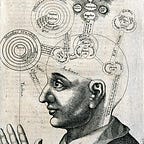The Coronavirus And The Is-Ought Problem.
The central claims of Natural Law Theory(NLT) state that in human affairs is just when it is right according to reason but that the first rule of reason is the law of nature(Aquinas).
If we were to take three people with totally opposite world views, with subject A is a spiritualist, subject B is a physicalist and subject C as a vegan anti meat activist ,and put them into a pit of lions armed with a sword, we would see their Looking Glass(the mental image of themselves) and their normative persona shatter we tasked with surviving the tangible threat of mutilation.
One may be surprised, knowing their respective world views before falling into the pit, that the spiritualist and vegan react with just as much brutality in the name of self preservation as the physicalist who believes himself to be just a body unlike the spiritualist.
It is true then that self preservation is instinctive and therefore apart of human nature. It thus follows that humans, in common discourse, believe laws ought to contribute to ones own self preservation.
This basic Ought to preserve oneself has been contextualized by politicians in order to attain compliance, in the 1980’s it was the war on drugs, in 2001 it was the war on terror, in 2010 it was the war against H1 N1 and in 2020 we have the war against the Coronavirus.
In other words, we have the inversion of an ought within human nature that is presented to the public via the creation of customs(i.e. mask mandates and social distancing) to ensure a sizeable portion of the population will not only fear the virus, but the stigma of non conformity. The creation of customs, values and propaganda create distractions which allow government to use a soft form of coercion(i.e. handing out fines via bylaw officers) as opposed to hard coercion where people are violently arrested without just cause.
Soft coercion is preferred over hard coercion because a pragmatic forcing of everybody into lockdown effects our direct passions(i.e. fear, grief, joy(Hume)) whereas soft coercion effects our indirect passions(i.e. pride, humility, love) of those who believe it to be moral obligation to conform for the safety of others. The soft coercer will seek assure the person that lockdowns correlate to self preservation.
The legal positivist uses the Ought of self preservation to create his own synthetic additions to that Ought which are diametrically opposed to the persons concrete self preservation(i.e. employment, business and sense of prosperity) and only appeal to the abstract fear of the masses. The legal positivist therefore conflates the is with the ought. The virus, as we are told, is dangerous and that we ought to protect ourselves. It is explained further that self preservation is instinctual and therefore apart of human nature, therefore we ought to make laws central to self preservation at this particular time.
The emotive person would think that the above proposition is reasonable and just. The more analytically incline person would think such a proposal is reasonable prima facie but unjust in the context of what conceptual scheme comes out of those using a truism to justify their own objectives in politics.
Legal positivists create their own axioms as it relates in attempting to shape and attain consent, in natural law theory is assumed that society already has the axioms of moral obligation embedded within it. if the latter were untrue in the context of the coronavirus, we would have civil disputes on mass about weather or not it is ethically correct to attend abeach or reopen the gyms.
Such disputes do not exist, therefore requiring lockdowns to be enforced either by fines or physical arrest.
End of essay.
